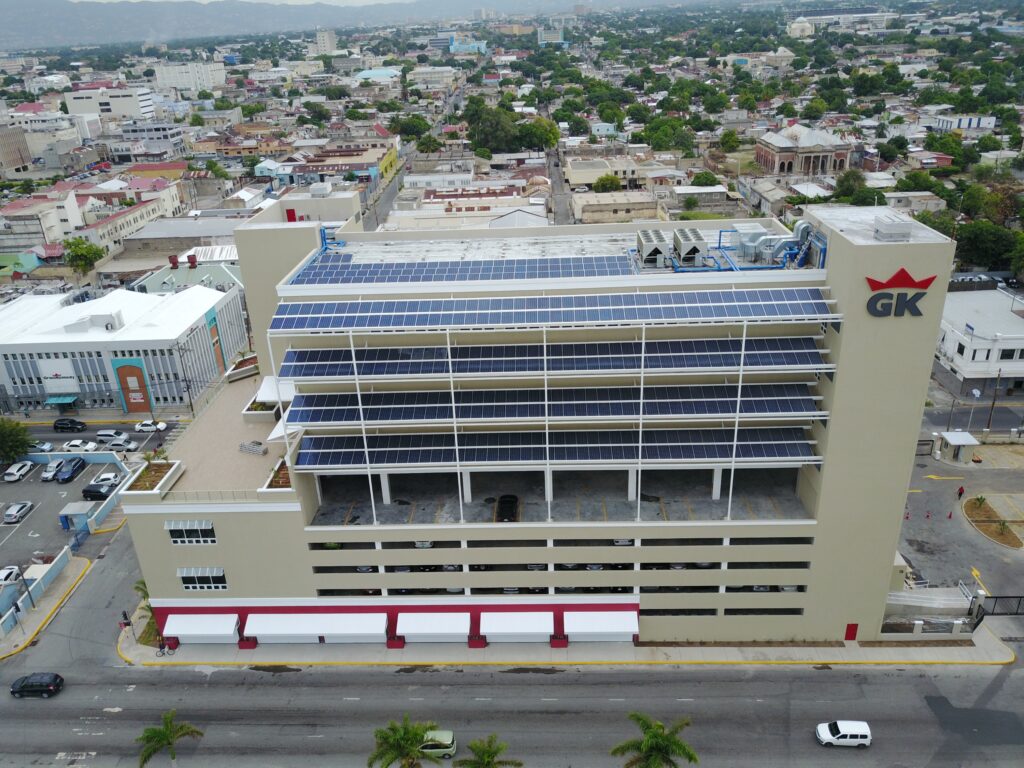New Energy Policy launched in keeping with Company’s Environmental, Social and Governance (ESG) Agenda
The new Hi-Lo Food Stores (Hi-Lo) location in Negril, Westmoreland, and the Grace Agro-Processors (GAP) Plant in Denbigh, Clarendon are the latest facilities in the GraceKennedy (GK) Group to ‘go solar’. Both locations have installed solar power grid-tied systems with a combined generating capacity of 925 kWh per day, and which are projected to meet approximately 50 – 60% of the energy needs at the new Hi-Lo location, and up to 50% of the energy needs at GAP Denbigh.
Solar grid-tied systems use solar panels and inverters for power generation. They do not require batteries to store power for night-time use and are connected to the electrical power grid.

Frank James, CEO of GK Foods – Domestic, explained, “The pivot towards solar energy is embedded in our new GK energy policy, which was launched in May this year and aims to diversify the Group’s energy supply, through sustainable energy solutions, including renewables. Full implementation of the policy is projected to recover approximately US$1 million in energy cost reductions annually for GK by 2026. This move also aligns with GK’s ESG (environmental, social and governance) agenda, which was launched earlier this year, and among other things, charges us with being responsible stewards of our environment.”
For Cathrine Kennedy, General Manager of Hi-Lo Food Stores, the new Negril store, which opened on October 15, represents the Hi-Lo of the future, “To ensure that we are sustainable in our ongoing development, we made a strategic decision that every new build Hi-Lo store going forward will incorporate solar energy.”
Carl Barnett, Senior General Manager of Manufacturing at Grace Foods, who is also leading the implementation of GK’s new energy policy across the Group, commented, “GAP started operations in 2019 and since then we have seen a gradual increase in our electricity usage. We determined that the grid-tie system would be the most suitable for our needs, as approximately 68% of the plant’s power usage occurs in the day.”
The solar installation at GAP Denbigh was brought online on November 1 and is expected to generate payback in under four years.
Hi-Lo Negril and GAP Denbigh, join several other GK subsidiaries including Dairy Industries Jamaica Limited and NALCAN (formerly Grace Food Processors (GFP) Canning) in Kingston, GK’s Distribution Centre in Spanish Town, and GFP Meats in Savanna-la-mar, Westmoreland, in implementing on-site solar power generation. GFP Meats also recently commenced an energy project expansion, where liquefied natural gas (LNG) will be added to its current energy mix. GraceKennedy’s new Headquarters in Downtown Kingston, which opened in 2019, is also solar powered, with that system currently providing 30% of the building’s daily energy needs.
Since the start of 2022, GraceKennedy has invested over US$3 million in energy efficiency projects.
GK’s new energy policy supports green building practices, which incorporate energy saving approaches in design and construction phases. Energy efficiency assessments are now required for all GK capital expenditure projects going forward. The policy also calls for equipment upgrades, and the installation of energy management systems across GK’s businesses, to closely monitor energy consumption.
James continued, “Heavy dependence on imported petroleum products contributes to GK’s susceptibility to the volatilities of the world’s oil market including supply and price fluctuations.”
“With the introduction of our new energy policy, we are demonstrating our commitment to the development of a sustainable energy strategy with a focus on exploiting indigenous renewable sources, all while reducing the Group’s carbon footprint,” he concluded.
























